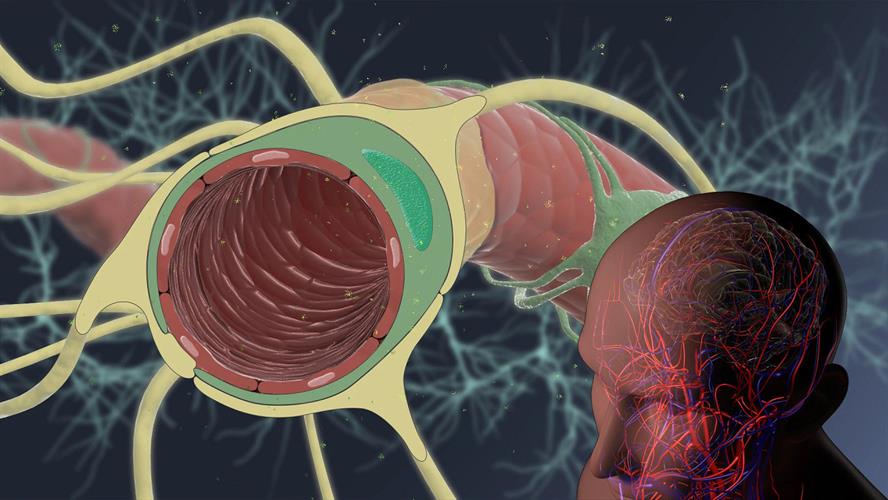June 14, 2021 -- Developing more effective methods to deliver drugs across the blood-brain barrier (BBB) is the goal of a new collaboration being led by the Wyss Institute for Biologically Inspired Engineering at Harvard University.
On average, less than 1% of a drug enters the brain from the bloodstream, making treatment for brain tumors and neurological and neurodegenerative disorders challenging.
The initiative will aim to identify transport target proteins in the BBB and to develop antibody compounds that bind to these targets to facilitate the delivery of future therapeutics to the brain. The team is targeting proteins that are highly enriched within brain microvascular endothelial cells that line BBB microvessels but are relatively scarce or absent in microvessels in other organs. The researchers will employ comparative proteomic and transcriptomic approaches and a bioinformatic brain delivery target discovery platform.

Wyss researchers have also developed new computational approaches to collect, analyze, and integrate data on potential delivery targets. They will further investigate target shuttle proteins emerging from this approach for their potential to transport druglike cargo molecules using the Wyss Institute's antibody shuttle discovery platform.
Participating industry partners include Bristol-Myers Squibb in the U.S., Eisai in Japan, and H. Lundbeck in Denmark. The collaboration is also supported through a $750,000 grant from the Massachusetts Life Science Center's Novel Therapeutics Delivery program.
For this project, Wyss is also collaborating with Cell Signaling Technologies to study RNA and protein expression in different tissues to identify new BBB transport targets, and with Lundbeck and FairJourney Biologics to codevelop antibody compounds that shuttle drugs to the brain.
The industry collaborations were established through Harvard's Office of Technology Development. Financial details of the collaborations were not disclosed.
Copyright © 2021 scienceboard.net








